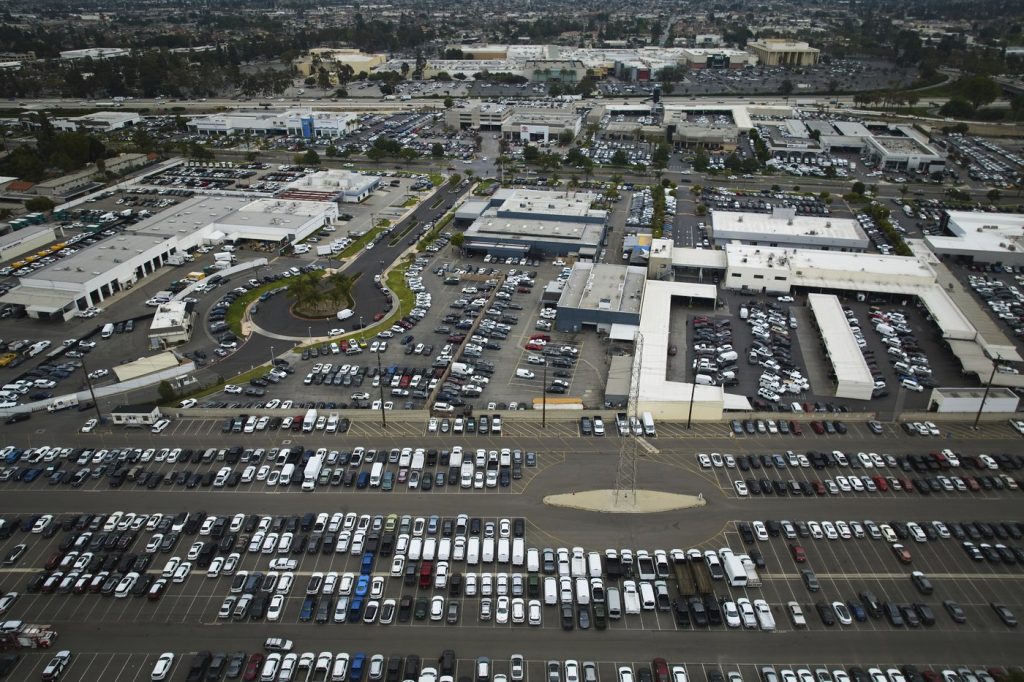WASHINGTON (AP) — Renowned economist Arthur Laffer has issued a significant warning regarding President Donald Trump’s proposed 25% tariffs on auto imports, stating that such tariffs could potentially increase the cost of a vehicle by $4,711. Laffer asserts that these proposed taxes may undermine the competitiveness of U.S. automakers against their international counterparts.
In a detailed 21-page analysis, which was shared with The Associated Press, Laffer, who was awarded the Presidential Medal of Freedom by Trump in 2019 for his contributions to economics, emphasizes that the auto industry would be better off if Trump maintained the supply chain rules established in the 2019 United States-Mexico-Canada Agreement (USMCA).
The White House has temporarily exempted auto and parts imports under the USMCA from the proposed tariffs, effective from April 3, in order to devise a procedure for taxing non-U.S. content in vehicles and parts covered under the agreement. Laffer warns that without this exemption, the tariffs may inflict irreversible damage on the auto industry, contradicting the administration’s objectives of enhancing U.S. manufacturing and ensuring economic stability.
In his analysis, Laffer states, “A 25% tariff would not only shrink, or possibly eliminate, profit margins for U.S. manufacturers but also weaken their ability to compete with international rivals.” During a Friday interview, Laffer described the reaction to his report as a “kerfuffle” but reiterated that his findings are strictly based on economic principles rather than an assessment of Trump’s negotiation skills or strategic trade approach.
Laffer acknowledged Trump’s capabilities as a negotiator, noting his deep understanding of trade issues. He suggested that the threats associated with tariffs could potentially result in lowered trade barriers and improved economic outcomes for the U.S. economy, similar to tactics employed during Trump’s first term. “Donald Trump is more familiar with the gains from trade than any politician I’ve ever talked to in my life,” Laffer remarked, emphasizing that his analysis should not be viewed as a critique of Trump’s strategies.
Although Trump’s tariff proposals have created apprehension in the stock market and among U.S. consumers, Laffer’s analysis underscores the potential economic risks tied to the prospect of import taxes if they fail to yield substantial agreements with other countries. The report serves as a reminder to Trump that it is not too late to shift his approach, particularly praising the USMCA as a “significant achievement” during his presidency.
Laffer points out that without the USMCA exemptions, the cost per vehicle would be $4,711, while maintaining the exemptions would reduce this figure to $2,765. Trump, who honored Laffer with the Presidential Medal of Freedom in recognition of his economic contributions, launched Laffer’s prominence in the economic realm decades ago when the economist illustrated the concept of the Laffer curve on a napkin. This theory posits that there exists an optimal tax rate that maximizes revenue but can become counterproductive at excessively high rates.
Throughout his career, Laffer has held prominent roles, including serving as the first chief economist of the White House Office of Management and Budget and advising President Ronald Reagan on economic policies. He also provided economic counsel during Trump’s 2016 presidential campaign and co-authored the book “Trumponomics: Inside the America First Plan to Revive Our Economy.”
In support of the proposed tariffs, Trump believes they will incentivize foreign and domestic automakers to expand production and establish new factories in the U.S. He recently celebrated Hyundai’s planned $5.8 billion investment in a steel plant in Louisiana as evidence that his tariff strategy is effective. Trump argues that these tariffs would contribute to reducing the federal budget deficit while promoting domestic production, asserting that it is “ridiculous” for cars to be manufactured in multiple locations.










